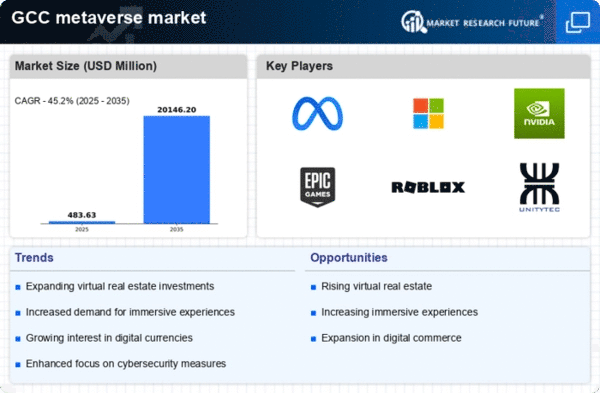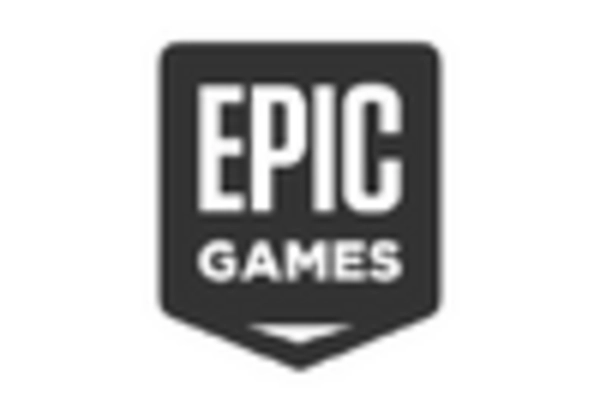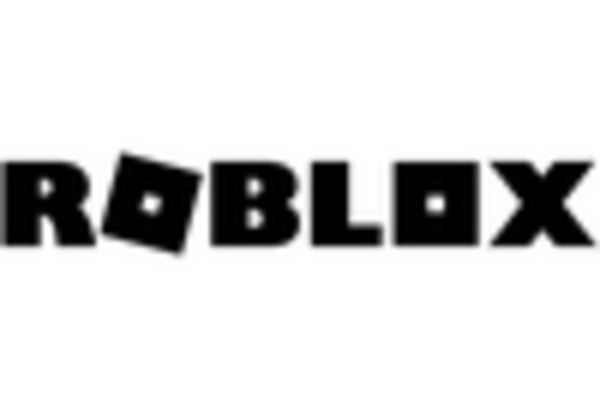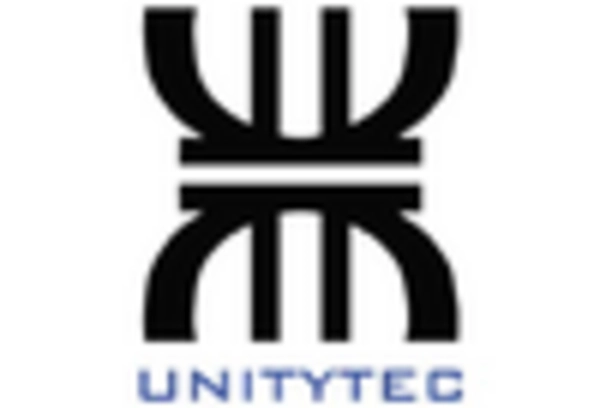Increased Focus on Social Interaction
The metaverse market is increasingly focusing on enhancing social interaction among users. As individuals seek more meaningful connections in digital spaces, platforms that facilitate social engagement are gaining traction. This trend is reflected in the growing number of social VR applications, which allow users to interact in virtual environments. By 2025, it is anticipated that social VR platforms could see user growth of over 40% in the GCC. This emphasis on social interaction is likely to attract a diverse user base, including younger demographics, thereby expanding the reach and influence of the metaverse market.
Expansion of E-commerce in Virtual Spaces
The metaverse market is witnessing a significant expansion of e-commerce activities within virtual environments. As consumers increasingly turn to online shopping, businesses are exploring opportunities to create immersive shopping experiences in the metaverse. In 2025, it is estimated that virtual commerce could account for up to 15% of total retail sales in the GCC, driven by the integration of AR and VR technologies. This shift allows consumers to interact with products in a more engaging manner, potentially increasing conversion rates and customer satisfaction. Retailers are investing in virtual storefronts and experiences, which could redefine the shopping landscape and contribute to the overall growth of the metaverse market.
Rising Demand for Immersive Entertainment
The metaverse market in the GCC is experiencing a notable surge in demand for immersive entertainment experiences. This trend is driven by the increasing popularity of virtual reality (VR) and augmented reality (AR) technologies, which are reshaping how consumers engage with digital content. As of 2025, the market for VR and AR in the region is projected to reach approximately $1.5 billion, reflecting a growth rate of around 30% annually. This rising demand is prompting companies to invest heavily in developing innovative gaming and entertainment platforms, thereby enhancing user engagement and satisfaction. The metaverse market is likely to benefit from this trend, as more consumers seek out unique and interactive experiences that transcend traditional media formats.
Technological Advancements in Connectivity
Technological advancements in connectivity are significantly impacting the metaverse market in the GCC. The rollout of 5G networks is enhancing the speed and reliability of internet connections, which is crucial for delivering seamless virtual experiences. As of November 2025, it is estimated that 5G penetration in the region will exceed 60%, enabling more users to access high-quality metaverse applications. This improved connectivity is likely to facilitate the development of more sophisticated virtual environments and applications, thereby attracting a larger audience. The metaverse market stands to gain from these advancements, as they enable richer and more immersive experiences for users.
Government Initiatives Supporting Digital Innovation
Government initiatives across the GCC are playing a crucial role in fostering digital innovation, which is essential for the growth of the metaverse market. Various governments are implementing policies aimed at enhancing digital infrastructure and promoting technology adoption. For instance, the UAE has launched its 'Digital Economy Strategy,' which aims to increase the contribution of the digital economy to GDP by 20% by 2031. Such initiatives are likely to create a conducive environment for businesses operating in the metaverse, encouraging investment and innovation. The support from government bodies may facilitate the development of new technologies and platforms, ultimately driving the expansion of the metaverse market.
















